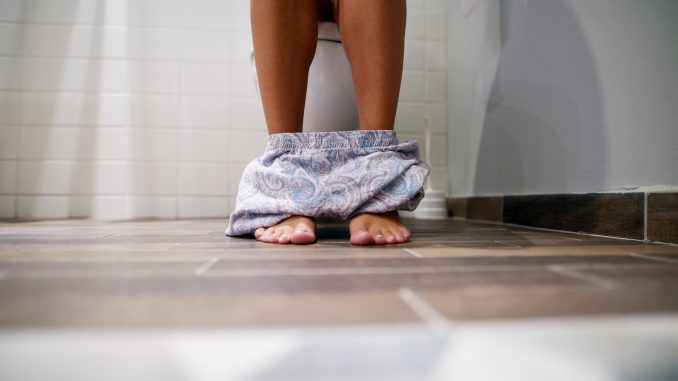
Do you have problem pee so often? Frequent urination means having an urge to pass urine more ofthen than usual.
When one urinates more than 3 liters a day of urine, this is known as polyuria. Sometimes, it can indicate a more serious condition.
Urinary frequency is different from urinary inconntinence. Most people urinate 6 or 7 times in 24 hours. More than that may be referred to as frequency but everyone is different.
It could become a problem if it affects a person’s quality of life. Frequency can often be treated with exercises but if there is an underlying condition such as diabetes this will need attention.
Urination is the way the body gets rid of waste fluids as it contains water, uric acid, uread and toxins and waste filtered from within the body.
The kidneys play a key role in this process. Individuals only see a doctor when urination becomes so frequent that they feel uncomfortable.
Theres many possible cause of this frequent urination . Lifestyle-based also causes include drinking a lot of fluids especially if the contain caffeine or alcohol.
Frequent urination can also develop as a habit.
The bad thing is it could be a sign of kidney or ureter problems, urinary bladder problems, or another medical condition such as diabetes mellitus, diabetes insipidus, pregnancy or prostate gland problems.
Other causes or related factors include:
-anxiety
-diuretics, such as chlorothiazide, that make you urinate fluid from your body
-food and drinks that act as diuretics
-stroke and other brain or nervous system conditions
-urinary tract infection
-tumor or mass in the pelvic area
-interstitial cystitis, a type of inflammation of the bladder wall
-overactive bladder (OAB) syndrome, which causes involuntary bladder
-contractions that lead one to feel a sudden urge to have to urinate
-bladder cancer
-bladder or kidney stones
-urinary incontinence
-urethral stricture
-radiation of the pelvis, such as during cancer treatment
-colon diverticulitis, where small, bulging outpouching sacs develop in the wall of the large intestine
-a sexually transmitted infection (STI), such as chlamydia
Diagnosing the Cause of Frequent Urination
If urinary frequency interferes with your lifestyle or is accompanied by other symptoms such as fever, back or side pain, vomiting, chills, increased appetite or thirst, fatigue, bloody or cloudy urine, or a discharge from the penis or vagina, it’s important to see your doctor.
To diagnose the cause of frequent urination, your doctor will perform a physical exam and take a medical history, asking questions such as the following:
- Are you taking any medications?
- Are you experiencing other symptoms?
- Do you have the problem only during the day or also at night?
- Are you drinking more than usual?
- Is your urine darker or lighter than usual?
- Do you drink alcohol or caffeinated beverages?
Depending on the findings of the physical exam and medical history, your doctor may order tests, including:
Urinalysis . The microscopic examination of urine that also involves a number of tests to detect and measure various compounds that pass through the urine.
Cystometry. A test that measures the pressure inside of the bladder to see how well the bladder is working; cystometry is done to determine if a muscle or nerve problem may be causing problems with how well the bladder holds or releases urine.
Cystoscopy. A test that allows your doctor to look at the inside of the bladder and urethra using a thin, lighted instrument called a cystoscope. There’s a broader term called urodynamics that includes tests such as cystometry, uroflowmetry, urethral pressure and others.
Neurological Tests. Diagnostic tests and procedures that help the doctor confirm or rule out the presence of a nerve disorder.
Ultrasonography. A diagnostic imaging test using sound waves to visualize an internal body structure.
Treatment for Frequent Urination
Treatment for frequent urination will address the underlying problem that is causing it. For example, if diabetes is the cause, treatment will involve keeping blood sugar levels under control.
The treatment for overactive bladder should begin with behavioral therapies, such as:
- Bladder retraining. This involves increasing the intervals between using the bathroom over the course of about 12 weeks. This helps retrain your bladder to hold urine longer and to urinate less frequently.
- Diet modification. You should avoid any food that appears to irritate your bladder or acts as a diuretic. These may include caffeine, alcohol, carbonated drinks, tomato-based products, chocolate, artificial sweeteners, and spicy foods. It’s also important to eat high-fiber foods, because constipation may worsen the symptoms of overactive bladder syndrome.
- Monitoring fluid food intake. You should drink enough to prevent constipation and over-concentration of urine. Avoid drinking just before bedtime, which can lead to nighttime urination.
- Kegel exercises. These exercises help strengthen the muscles around the bladder and urethra to improve bladder control and reduce urinary urgency and frequency. Exercising pelvic muscles for five minutes three times a day can make a difference in bladder control.
- Biofeedback. This techinique can help you learn how your pelvic muscles work to help you better control them.
Source :-Medical News Today

Leave a Reply